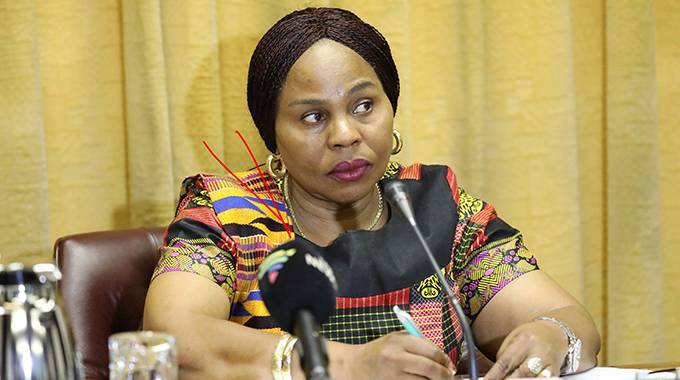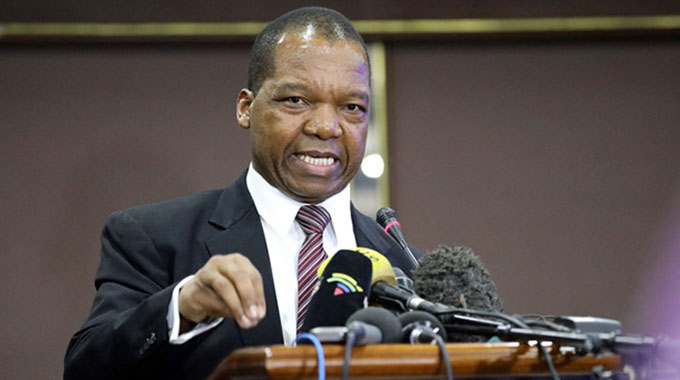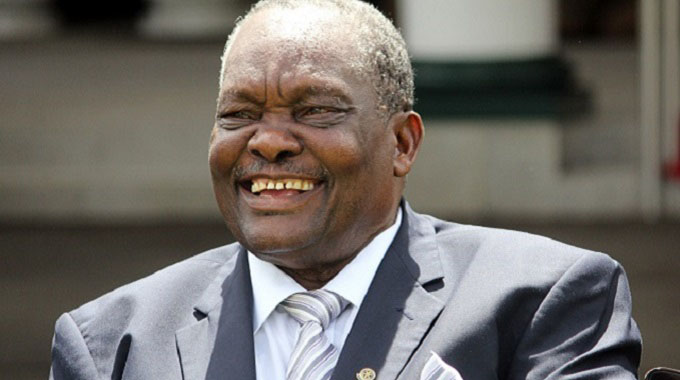Mutsvangwa hails GZU radio station

Walter Mswazie Masvingo Correspondent
Information, Publicity and Broadcasting Services Minister Monica Mutsvangwa yesterday hailed Great Zimbabwe University (GZU) for establishing a radio station and acknowledged the need to regularise its operations. She made the remarks after giving a public lecture at the university as part of World Press Freedom Day commemorations.
She was interviewed on an array of issues by one of the media students, Tabitha Mphala, at the Campus Radio.
“We are fully cognisant that there is need to license this state-of-the-art radio station to regularise its operations,” said Minister Mutsvangwa.
“This initiative will not only benefit the students but the broader community of Masvingo providing the much needed solutions to the day-to-day issues affecting not only Zimbabwe, but humanity in general.
“The GZU Campus radio station stands as a colossal testimony of the role that academic institutions ought to play in the social transformation agenda of our nation, indeed through social innovation.
“Where there is innovation and progress, Government would not dither to play its part in making sure noble projects receive the support they deserve.”
She said Government had licensed a number of commercial radio stations as part of its thrust to enhance broadcasting services across the country.
Cde Mutsvangwa said the establishment of university radio stations would bring competition, professionalism and sanity to the media fraternity.
She said the GZU radio station provided a platform to return to professional journalism in the country as some people got into studios without requisite skills and knowledge.
“There is a need for us as a nation to self-introspect as we commemorate the World Press Freedom Day. We must be asking ourselves if the country has done enough on the cultural diversity.
“Our Constitution clearly indicates that we have 16 official languages. But, is our media environment reflective of this enormous diversity? If not, how can we innovatively transform our media system into stimulating robust citizen participation in economic, democracy and governance issues?
“This stands as the giant example of how stakeholders ought to find solutions to local problems,” she said.
She said the establishment of a radio station by GZU dovetails with Government’s thrust to revamp educational institutions to become dependable and guiding lights for social, economic and political transformation.
She said her ministry was also encouraging the media to play a democratic role by ensuring there was free production and circulation of ideas that shaped the developmental narrative of the nation.
Government, she said, was committed to fulfilling its constitutional obligations in the growth of the media industry.
“Government is doing everything within its capacity to make sure that all constitutional provisions which guarantee freedom of expression, the media and access to information are practically realised.
“Currently, we are aligning different pieces of legislation to ensure they conform to the best media practice.”
Chairman of the GZU’s Department of English and Media studies Mr Golden Maunganidze said the radio station presented students with an opportunity to acquire relevant skills in readiness for the formal media industry.
“The radio stations equips our student with requisite skills for broadcasting and they will not have challenges in getting into the media industry. We have partnered with other broadcasting organisations like Zimpapers, Zimbabwe Broadcasting Corporation (ZBC) and Hevoi FM among others.”
Last night Minister Mutsvangwa officiatiated at the 50th anniversary celebrations of The Financial Gazette held in Harare.
Addressing guests, the minister said as Zimbabwe rebuilt her economy, it was critical that the media fully understood what Government was doing to achieve its Vision 2030 of an upper middle income economy, writes Victor Maphosa.
“President Mnangagwa has consistently said his administration is open for business and dialogue and as such, it is important for media to align itself with national goals.
“Zimbabwe is for all of us and we should be responsible enough to report accurately and objectively so that our economy can attract significant investment inflows,” she said.
She emphasised on the need for the media to exercise freedom in a responsible manner and urged journalists to desist from sensationalism.
“I would like to emphasise the point that Zimbabwe needs a media model where the players practise Press freedom in a responsible way.
“I also hasten to add that should a crisis such as foreign currency, fuel shortages or an Avian flu epidemic occur, our media should not go for sensational coverage.
“The media should exercise judgment and cover unfolding events sensitively and in a manner that informs, educates, unites and not divides our people.”
Minister Mutsvangwa said press freedom must be practised with a larger sense of responsibility and the ability to understand.
“Editors and journalists must have high personal integrity and sound judgment — people who understand Zimbabwe’s uniqueness as a country, our multi-racial and multi-religious make-up, vulnerabilities and national goals.
“By this, I mean that our editors and journalists must be men and women who know what works for Zimbabwe and how to advance our society’s collective interests.”
She said The Financial Gazette’s 50th anniversary came at a time when Government was making significant strides in creating an environment conducive for journalists.
“It is also critical to note that The Financial Gazette is celebrating 50 years at a time Government has opened up the airwaves and has made the environment more conducive for journalists by making concerted efforts of repealing AIPPA.
“As Government we sincerely hope The Financial Gazette will take advantage of the opening of up of the airwaves to grow its media portfolio and create jobs for thousands of our young people who are graduating at our national universities and colleges,” she said.
In his remarks, Modus Publications (owners of The Financial Gazette) chief executive Mr Pilate Machadu lauded stakeholders for supporting The Financial Gazette.
Mr Machadu also commended the Government for the concerted efforts in making the working environment for journalists conducive.







Comments